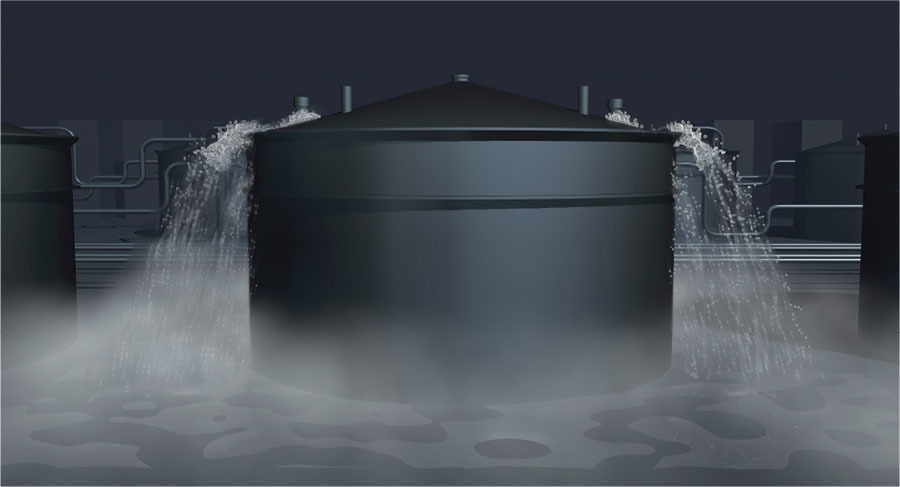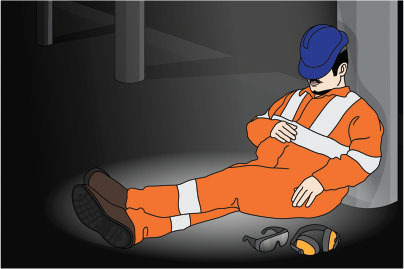Losing one night of sleep doubles a worker’s error rate.


More than half of night shift workers report nodding off or falling asleep at least once per week when working the night shift.
Sleep loss doubles errors
Researchers studied how well people were able to complete a multistep paper-and-pencil task.
With normal sleep, the error rate was 15%.
With no sleep the previous night, the error rate was 30%.
Working without sleep
Without sleep, people:
- Take longer to do a task
- Skip some essential steps
- Repeat the same step over and over
- Perform especially poorly after interruptions
Talking Points and References
Not sleeping is dangerous
Everyone needs seven to eight hours of sleep each night to perform their best.
When people don’t sleep, they make more mistakes.
If employees are tired, supervisors need to assign them to lower-risk work, or send others to double check their work.
Sleep Research Findings
Allow pilots to nap in the cockpit
Following extensive sleep research, Canada and Australia allow one of the two commerical pilots to take a 40-minute nap in the cockpit.
Night shift workers sleep on the job
More than half of night shift workers report falling asleep on the job at least once per week.
Most dangerous time for errors
Humans’ biological time clock (circadian rhythm) is at its slowest just before sunrise. Thus, 4 AM to 6 AM is the most dangerous time for errors, especially if the worker is already sleep deprived.
Sleep deprived = being drunk
Research shows that 17 hours without sleep creates the same level of impairment as 0.05% blood alcohol content.
Beware of sleep-deprived doctors
Doctors who slept only two or three hours the night before were shown to make double the number of errors when reading electrocardiographic strip results.
Improving performance
While it is true that some people perform better than others when sleep deprived, everyone performs better with seven to eight hours of sleep.
Michigan State Univ., “Science Underestimated Dangerous Effects of Sleep Deprivation,” www.sciencedaily.com/releases/2019/11/191121183923.htm (Nov. 21, 2019).
Stepan, M. E., et al., “Effects of Total Sleep Deprivation on Procedural Placekeeping: More Than Just Lapses of Attention,” Journal of Experimental Psychology: General, 149 (4), pp. 800–806, https://doi.org/10.1037/xge0000717 (2020).
This Safety Minute was prepared by Larkin Communication (www.larkin.biz) in partnership with CEP.

Copyright Permissions
Would you like to reuse content from CEP Magazine? It’s easy to request permission to reuse content. Simply click here to connect instantly to licensing services, where you can choose from a list of options regarding how you would like to reuse the desired content and complete the transaction.
